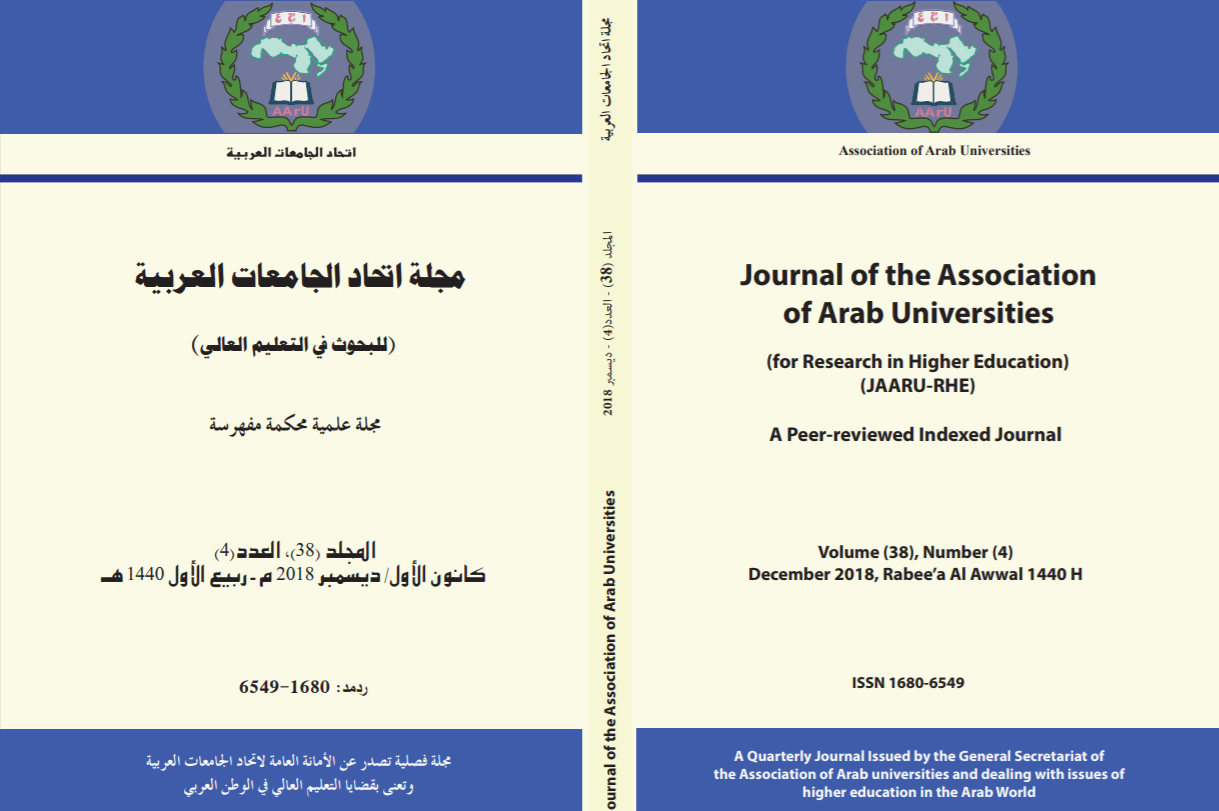Journal of the Association of Arab Universities for Research in Higher Education (مجلة اتحاد الجامعات العربية (للبحوث في التعليم العالي

Abstract
هدف المقال التعرف إلى أهداف السياسة الخارجية الأمريكية تجاه منطقة الشرق الأوسط، وتوضيح مؤسسات صنع القرار السياسي الخارجي الأمريكي، وبيان محددات السياسة الخارجية للولايات المتحدة الأمريكية، وتحديد أهداف السياسة الخارجية الأمريكية تجاه منطقة الشرق الأوسط، ووسائل تنفيذ تلك الأهداف. ومن خلال استخدام المنهج الوصفي التحليلي تم التوصل إلى أن عملية صنع القرار في الولايات المتحدة الأمريكية عملية معقّدة نتيجةً للدور الكبير لهذه الدولة على الساحة الدولية، وأن هناك العديد من الدوائر الرسمية وغير الرسمية التي تتفاعل فيما بينها لصناعة قرار موحد وعقلاني يخدم مصالح الولايات المتحدة الأمريكية التي تُعتبر الدولة العظمى الأولى في العالم. ويُعتبر الرئيس الأمريكي صاحب الدور الأبرز في صنع السياسة الخارجية الأمريكية. وتوصلت الدراسة كذلك إلى أن أهداف السياسة الخارجية تجاه منطقة الشرق الأوسط تتمثل بضمان تدفق النفط من هذه المنطقة التي تمتلك حوالي ثلثيْ احتياطي العالم من النفط، وعدد من الثروات الطبيعية والموارد المعدنية الأخرى، وضمان أمن إسرائيل التي اعترفت بها الولايات المتحدة الأمريكية منذ عام 1948، وساندتها بشكلٍ مباشرٍ أو غير مباشر، ودعمتها عسكرياً في الحروب التي خاضتها مع العرب في الأعوام 1948، 1967، 1973، ودعم الأنظمة السياسية العربية الصديقة التي تتعاون معها أمنياً وسياسياً في مجال مكافحة الإرهاب، وأن هذه الأهداف ثابتة لا تتغير بتغير من يتولى مقاليد الحكم في هذه الدولة العظمى، إلا أن المختلف هو كيفية تحقيق هذه الأهداف،، ولا توجد أولوية أو أفضلية مطلقة لأداة دون الأخرى، فالمواقف والسياقات هي التي تجعل أفضلية استخدام أداة على أخرى
The article aimed to identify the goals of American foreign policy towards the Middle East region, clarify the institutions of American foreign political decision-making, clarify the determinants of the foreign policy of the United States of America, define the goals of American foreign policy towards the Middle East region, and the means of implementing those goals. Through using the descriptive analytical approach, it was concluded that the decision-making process in the United States of America is a complex process as a result of the great role of this country in the International arena; there are many official and unofficial circles that interact with each other to make a unified and rational decision that serves the interests of the United States of America which is considered the first superpower in the world. The study revealed that the American president is considered to have the most prominent role in making American foreign policy. The study also concluded that the goals of foreign policy towards the Middle East region are represented in ensuring the flow of oil from this region, which possesses about two-thirds of the world's oil reserves, and a number of other natural and mineral resources. In addition to ensuring the security of Israel, which the United States of America has recognized since 1948, supported it directly or indirectly, and supported it militarily in the wars it waged with the Arabs in the years 1948, 1967, and 1973, and support for friendly Arab political regimes that cooperate with it security and politically in the field of combating terrorism. These goals are fixed and do not change with the change of who assumes the reins of power in this great country, but what is different is how to achieve these goals, and there is no absolute priority or preference for one tool over the other, so the situations and contexts are that favors one tool over another
Recommended Citation
Krieshan, Manar Mazen Mansour and Albarasneh, Ayman
(2024)
"أهداف السياسة الخارجية الأمريكية تجاه منطقة الشرق الأوسط,"
Journal of the Association of Arab Universities for Research in Higher Education (مجلة اتحاد الجامعات العربية (للبحوث في التعليم العالي: Vol. 44:
Iss.
2, Article 11.
Available at:
https://digitalcommons.aaru.edu.jo/jaaru_rhe/vol44/iss2/11

